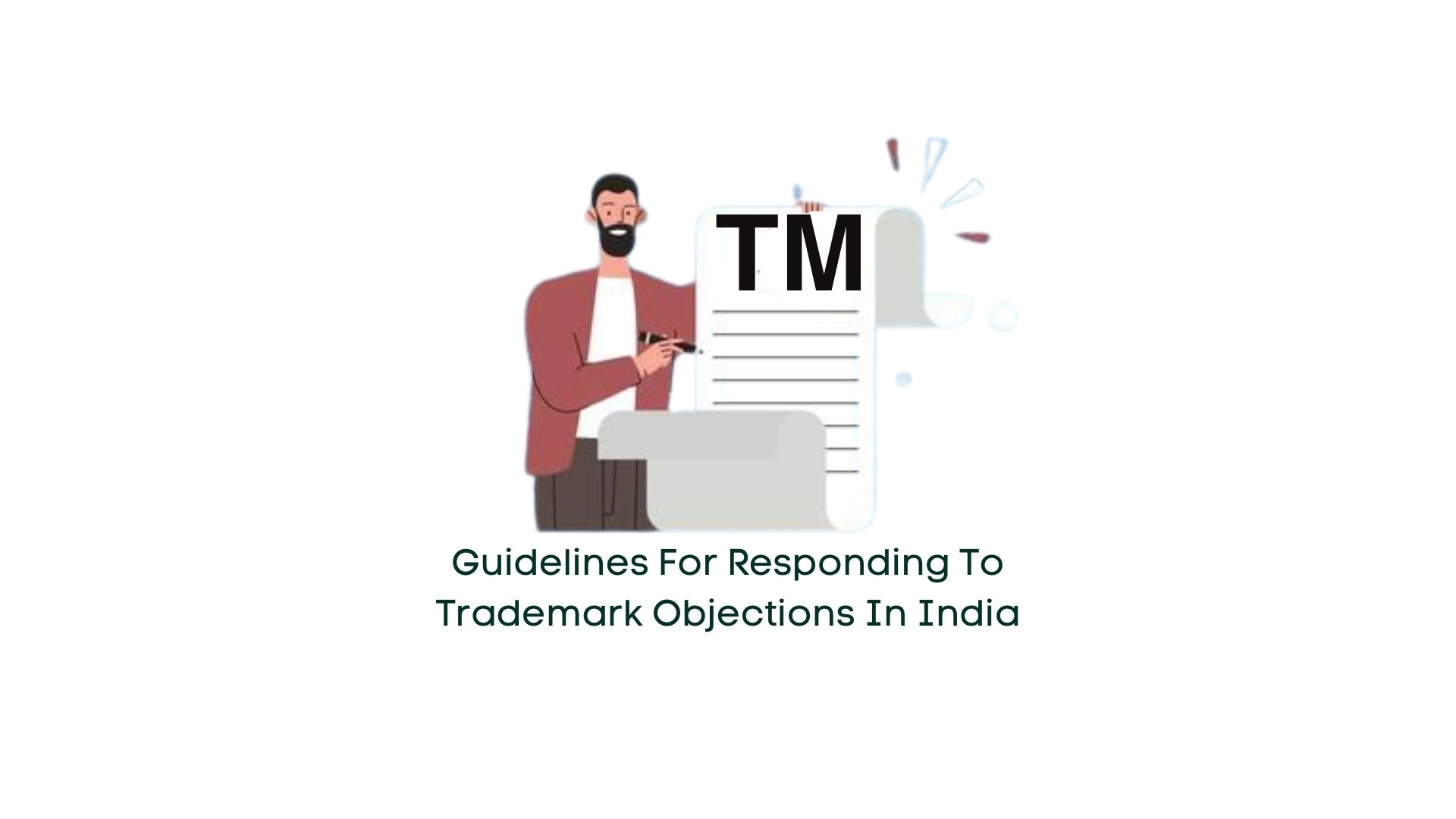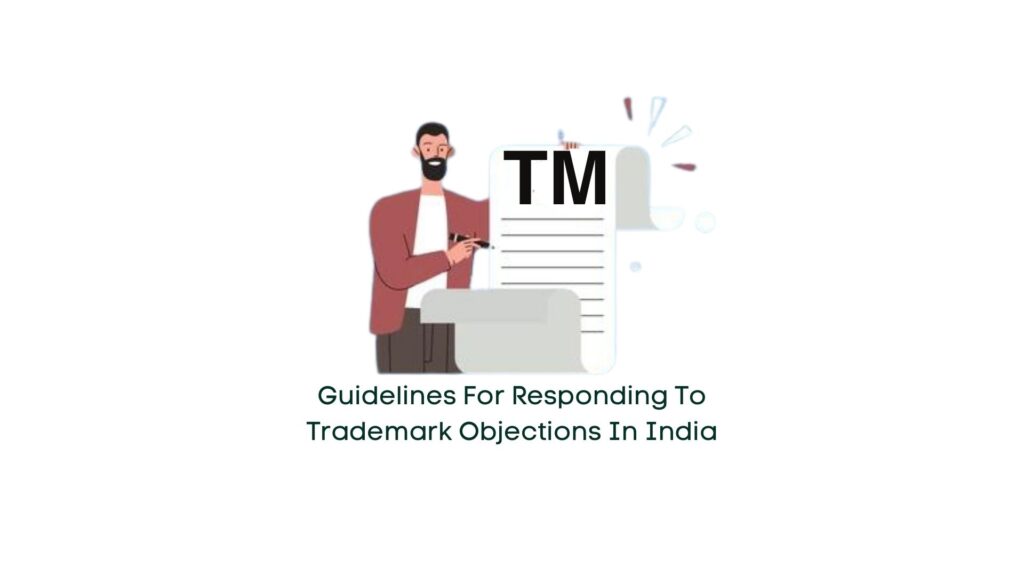
28 Feb Guidelines for Responding to Trademark Objections in India

In the realm of business, trademarks play a pivotal role, offering exclusive rights to employ specific shapes, symbols, and colors on goods associated with a particular enterprise. The process of securing a trademark necessitates meticulous planning and execution, especially in India, where approval from the registrar of trademarks is mandatory. Nevertheless, encountering objections from the registrar can impede this process, potentially leading to delays or outright rejection of the trademark application. This blog post elucidates the necessary steps to effectively respond to trademark objections in India.
Understanding Trademark Objections:
Trademark objection marks an initial phase in the trademark registration journey. Contrary to a flat-out denial, it signifies the registrar’s quest for a valid rationale or clarification concerning the proposed trademark. Applicants are afforded an opportunity to articulate how their trademark aligns with the criteria for legitimate registration.
In the event of a trademark objection, it is imperative to furnish a comprehensive response within one month from the date of objection issuance.
Common Reasons for Trademark Objections:
Trademark objections typically hinge on specific sections of the Trademark Act. Notably, Sections 9(1)(a), 9(1)(b), and 11(1) bear significance in the registrar’s assessment:
- Section 9(1)(a): Pertains to the incapacity of a mark to distinguish its product or service from others, rendering it unsuitable for trademark status.
- Section 9(1)(b): Deals with marks that designate characteristics such as kind, quality, or geographical origin, making them ineligible for trademark recognition.
- Section 11(1): Addresses the similarity or identity of the proposed mark with existing trademarks, warranting refusal of registration.
Additionally, objections may arise due to non-compliance with other terms of the Trademark Act or procedural errors like misclassification of trademark class.
Responding to Trademark Objections:
Checking Objection Status:
Before proceeding, applicants must ascertain the objection status through the following steps:
- Visit ipindiaonline.gov.in and select the “Trademark Application/Registered Mark” option.
- Choose the appropriate option based on residency status and provide necessary credentials, including a captcha code, to access the examination report.
- Download the examination report to review the objection details.
Filing a Response:
Responding to a trademark objection entails the following steps:
- Carefully analyze the objection to ensure a clear understanding.
- Draft a comprehensive response addressing the registrar’s concerns. This response must be submitted within 30 days of objection issuance, with provisions for extension upon valid grounds.
- Electronically file the response via the official trademark website, attaching the drafted reply in PDF format along with the power of attorney.
- Choose the mode of appearance for any subsequent hearings and submit the reply with the digital signature of the attorney.
Outcome and Further Proceedings:
Following the submission of the response, the registrar evaluates the reply. If satisfied, the process advances towards advertisement. However, if further clarification is needed, a hearing may be convened. Failure to address objections within the stipulated timeframe may result in abandonment of the application, necessitating a fresh filing.
Conclusion:
Securing a trademark is integral to brand establishment and protection in the competitive business landscape. Responding adeptly to trademark objections ensures smooth progression towards registration while safeguarding the integrity of the brand. Adherence to the regulations outlined in the Trademarks Act, 1999 is paramount, as any infringement carries legal ramifications. Thus, timely and judicious action is imperative for navigating the trademark registration process in India.


No Comments